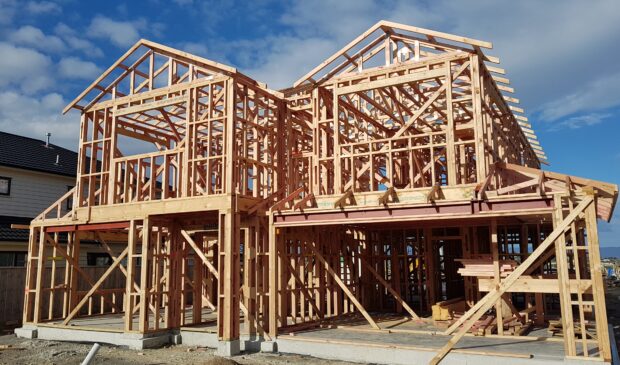City looks to train, grow new developers to target affordable housing
Tuesday, May 2, 2023 by
Chad Swiatecki Smaller developers without years of experience in the Austin market are invited to participate in a new city housing program designed with the goal of creating more affordable housing throughout the city.
Applications are open for the Austin Small Developer Training Program, which is being funded by the Austin Housing Finance Corporation using $352,770 from the Housing Trust Fund.
Participants in the four-month program, which is being led by Virginia-based Capital Impact Partners, will provide training, technical assistance, mentorship and pathways to potential financing for new developments. Capital Impact Partners has trained more than 200 developers in its Equitable Development Initiative since launching that effort in Detroit in 2018.
The program’s goal is to provide small-scale developers with the industry knowledge and expanded professional network needed to grow their businesses. Daria Guzzo, head of small developer training in Austin for Capital Impact Partners, said participants in the program tend to create new networks in their communities that attract new developers to enter the space.
“These are emerging developers who have some experience but are able to gain more knowledge, and make more connections, that can help open doors for more opportunities,” Guzzo said. “We hear that the one-on-one mentorship they receive from established developers in the communities is one of the strongest benefits of the program. And by expanding these emerging developers’ networks, participants graduate from the program feeling more equipped and more confident to pursue their deals.”
In addition to training on site selection, joint venture deals, architecture, zoning and construction best practices, developers going through the program can use one of their own sites or a site affiliated with the course to create a conceptual development that could lead to a viable project.
Dawn Perkins, a contract management specialist for the Housing and Planning Department, said one of the goals of the small developer training is to increase the number of companies owned by minorities, who are likely to be more aware of and able to address the needs of communities that have a higher risk of displacement. As part of the contract for the program, Capital Impact Partners will track and report data on participation and success for women and racial minority owners.
Perkins also noted that “missing middle” housing, which is seen as one solution for the affordability crisis, tends to be less costly to build and can be handled by smaller companies and community development corporations.
Guzzo added, “We’ve seen that the developers who come through this program are often familiar with their communities and are invested, both personally and ultimately financially, in seeing them succeed. They recognize the need for affordable housing and for other development that serves these communities.”
The success of similar efforts in Dallas, Detroit and Washington, D.C, where smaller developers have launched or completed a variety of mixed-use projects involving affordable housing, shows that there is a benefit to assisting new developers looking to target specific areas, Guzzo said. “Our model embeds the training into the local development context because we understand that each market is unique. The cohort engages directly with city representatives, local architects and construction companies and seasoned developers who have been working in the region for many years. Through this localized approach, the developers are able to take the information and knowledge gained through the training sessions and apply it directly to their own projects.”
Nora Linares-Moeller, executive director of HousingWorks Austin, said the city needs to look at all options to address a shortage of affordable housing as Central Texas remains one of the hottest real estate markets in the U.S.
“Affordable housing must remain part of the fabric of our community in Austin and Travis County,” she said in a prepared statement.
“In Austin alone, more than 222,000 households are at or below 80 percent of the median family income, including more than 44,000 households living below poverty level. The Austin Small Developer Training will help contribute to our goal of ensuring that all types of people and households can call Austin home.”
Photo by L Maule, CC BY-SA 4.0, via Wikimedia Commons.
The Austin Monitor’s work is made possible by donations from the community. Though our reporting covers donors from time to time, we are careful to keep business and editorial efforts separate while maintaining transparency. A complete list of donors is available here, and our code of ethics is explained here.
You're a community leader
And we’re honored you look to us for serious, in-depth news. You know a strong community needs local and dedicated watchdog reporting. We’re here for you and that won’t change. Now will you take the powerful next step and support our nonprofit news organization?








